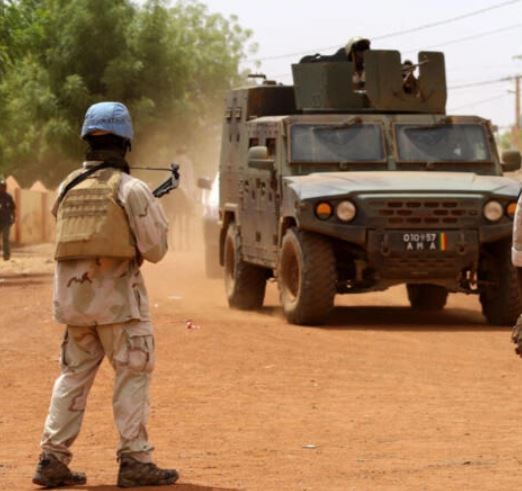Mali’s Enduring Struggle with Jihadist Violence
Mali, a nation beleaguered by over a decade of jihadist insurgencies and armed conflicts, recently witnessed another heart-wrenching atrocity. On July 1, an attack, attributed to jihadists, decimated the village of Djiguibombo, situated several dozen kilometers from Bandiagara. This latest massacre, claiming at least 21 innocent lives, underscores the persistent turmoil gripping the Sahel region.
The Attack Unfolds
The gruesome attack commenced before nightfall, enduring for approximately three harrowing hours. As recounted by a local youth representative, the carnage left 20 people dead, predominantly young individuals. The method of execution was barbaric, with many victims having their throats slit. Survivors fled towards Bandiagara, leaving the deceased unburied due to the overwhelming fear and chaos.
Provincial Authorities’ Response
The provincial authorities, albeit reticent due to the sensitive nature of their positions, corroborated the tragic events. An anonymous official from the provincial authority confirmed the death toll, attributing the attack to jihadist elements. Another official highlighted the dire security conditions, which impeded immediate access to the site of the atrocity. The arrival of the army post-attack offered a semblance of security, albeit too late for the victims.
Historical Context and Escalation
Mali’s entanglement with jihadist violence traces back to 2012, with northern regions initially bearing the brunt of the insurgencies. The situation exacerbated in 2015, particularly in central Mali, with the emergence of Katiba Macina, an Al-Qaeda-affiliated group led by the Fulani preacher Amadou Kouffa. This faction, alongside others, has perpetuated a cycle of violence, imposing draconian pacts on local populations, exacting taxes, and enforcing strict Islamic rules.
Humanitarian Impact and Government Actions
The humanitarian toll of these relentless assaults is staggering. Thousands have perished, and hundreds of thousands have been displaced, creating a pervasive atmosphere of fear and instability. Human rights organizations frequently decry the rampant impunity enjoyed by perpetrators of such heinous crimes. The Malian government’s efforts to counteract these insurgencies have been fraught with challenges, compounded by the remote and volatile nature of the affected regions.
Shifting Alliances and International Relations
Since the military coup in 2020, Mali’s rulers have realigned their political and military alliances. They have severed ties with erstwhile anti-jihadist allies, including France and other European partners, pivoting towards Russia. The junta has enlisted what it terms Russian military instructors, though numerous experts contend these are mercenaries from the private Russian company Wagner. This geopolitical shift has elicited varied reactions, influencing Mali’s strategic approach to countering jihadist threats.
The Broader Sahel Crisis
The jihadist menace is not confined to Mali alone but has permeated neighboring Burkina Faso and Niger. In all three nations, military regimes have seized power amidst the chaos. The regional instability has further complicated efforts to establish peace and security, with insurgencies spilling across borders, exacerbating the humanitarian crisis.
Calls for International Intervention
Given the deteriorating situation, there is a clarion call for robust international intervention. The complexity and scale of the conflict necessitate a concerted global effort to restore stability and support the beleaguered populations. Enhanced cooperation among international entities, regional governments, and local communities is imperative to dismantle the jihadist networks and foster sustainable peace.
Conclusion
The devastating jihadist onslaught in Djiguibombo epitomizes the incessant strife afflicting Mali. As the nation grapples with these multifaceted challenges, the resilience of its people remains a beacon of hope. It is incumbent upon the global community to galvanize support and implement strategic interventions to alleviate the suffering and pave the way for a peaceful and prosperous future for Mali and the broader Sahel region.
Soumya Smruti Sahoo is a seasoned journalist with extensive experience in both international and Indian news writing. With a sharp analytical mind and a dedication to uncovering the truth, Soumya has built a reputation for delivering in-depth, well-researched articles that provide readers with a clear understanding of complex global and domestic issues. Her work reflects a deep commitment to journalistic integrity, making her a trusted source for accurate and insightful news coverage.



